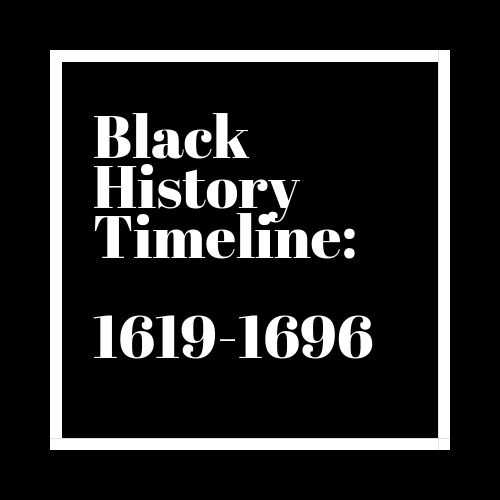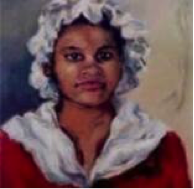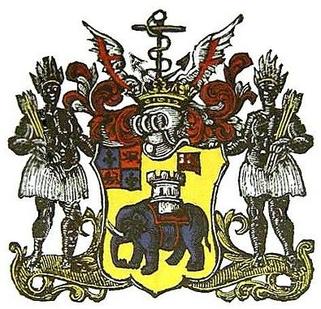The world was going through significant social, political, and economic upheavals during this period. Global dynamics were being altered by exploration, colonization, and the transatlantic slave trade, while African cultures, traditions, and resiliency were significantly influencing the experience of the African diaspora.
With this timeline, we hope to highlight significant occasions and figures that helped shape the history of African Americans during this critical time. These years provided the groundwork for the battles and victories that would come after, from the beginnings of slavery in the American colonies through the development of the first abolitionist movements.
By examining the timeline of events, we are better able to comprehend the difficult reality that Black people in the 17th century had to deal with. We can understand the resiliency, courage, and tenacity of individuals who faced many obstacles on their way to freedom, equality, and justice by appreciating and learning from this history.
1619
The first African slaves arrive in Virginia. The first Africans arrived in Virginia because of the transatlantic slave trade. The Africans who came to Virginia in 1619 had been taken from Angola in West Central Africa.
1640
John Punch, a black indentured servant, ran away with two white indentured servants, James, Gregory, and Victor. After the three were captured, Punch was sentenced to serve Virginia planter Hugh Gwyn for life. This made John Punch the first legally documented slave in Virginia (and the US).
1641
Some slaves now have legal rights thanks to the passage of the Massachusetts Body of Liberties. The Body of Liberties recognized some legal rights for those who were in servitude even though it did not end slavery in Massachusetts.
1644
The Colony of Maryland enacted a law forbidding the union of Black and White people. This law, which was the first of its kind in the English colonies, was part of a broader initiative to support the institution of slavery and reinforce racial divisions.
1652
The first recorded slave revolt in English North America took place in Gloucester County, Virginia. A group of enslaved Africans and Irish indentured servants rebelled against their masters and fled into the surrounding wilderness.
1660
A monopoly on the English slave trade was granted to the Royal African Company, allowing it the sole authority to ship Africans into slavery to the English colonies.
1746 Lucy Terry Prince, an enslaved person becomes the earliest known black American poet when she writes about the last American Indian attack on her village of Deerfield, Massachusetts.
Her poem, Bar’s Fight was not published until 1855.
Lucy Terry Prince: “Singer of History ” David R. Proper
Court Ruling on Anthony Johnson and His Servant
1654
John Casor became the first legal slave in America. Anthony Johnson, previously an African indentured slave, claimed John Casor as his slave. The Northampton County rule against Casor and declared him a slave for life by Anthony Johnson. Since Africans were not English, they were not covered by the English Common Law.
1662
Massachusetts reverses a ruling dating back to 1652, which allowed blacks to train in arms. New York, Connecticut, and New Hampshire pass similar laws restricting the bearing of arms.
1662
Virginia law, using the principle of partus sequitur ventrem, said that children in the colony were born into their mother’s social status; therefore children born to enslaved mothers were classified as slaves, regardless of their father’s race or status. This was contrary to English common law for English subjects, which held that children took their father’s social status.
1663
Maryland legalized slavery.
1664
New York and New Jersey legalized slavery
1664
Maryland is the first colony to take legal action against marriages between white women and black men.
1664
The State of Maryland mandates lifelong servitude for all black slaves. New York, New Jersey, the Carolinas, and Virginia all pass similar laws.
1666
Maryland passes a fugitive slave law.
1667
Virginia declares that Christian baptism will not alter a person’s status as a slave.
1668
New Jersey passes a fugitive slave law
1670
The State of Virginia prohibits free blacks and Indians from keeping Christian white servants.
1672
Royal African Company is founded in England, allowing slaves to be shipped from Africa to the colonies in North America and the Caribbean. England entered the slave trade.
It was led by the Duke of York, who was the brother of Charles II and later took the throne as James II.
The constitution and finance of the Royal African Company of England from its foundation till 1720, 1 / 24
1674
New York declares that blacks who converted to Christianity after their enslavement will not be freed.
1676
Both free and enslaved African Americans fought in Bacon’s Rebellion along with English colonists.
1680
The General Court of Massachusetts (which was the governing body of the Colony) passed a law that required all ships that were bringing any cargo of slaves to the colony to obtain permission from the governor. John Usher, John Saffin, and four others develop and implement a plan to circumvent the Royal African Company’s monopoly and import slaves into Massachusetts. They were successful in bringing slaves and selling them in 1681.
1682
All servants except Turks and Moors, blacks, racially mixed people, or Indians whose parents and native country are not Christian are to be treated as slaves • No owner or master should let any black or slave that doesn’t belong to him remain on his plantation for more than 4 hours at a time
1682
New York enacts its first slave codes. They restrict the freedom of movement and the ability to trade all enslaved people in the colony.
1682
Virginia declares that all imported black servants are slaves for life.
1684
New York makes it illegal for slaves to sell goods.
1690
By this year, all English colonies in America have enslaved Africans
1691
Virginia enacts a new law that punishes forbidding marriages between whites and blacks or whites and Native Americans. Children of such interracial liaisons become the property of the church for 30 years.
Statutory Prohibitions against Interracial Marriage
1691
South Carolina passes the first comprehensive slave codes
1691
County justices were authorized to send out armed men to apprehend “such [blacks], mulattoes or other slaves†who were runaways and if they were killed, their owner would be compensated.
If a white person were to marry a person who was black, racially mixed, or Indian, the couple had to leave Virginia within three months; fines for a free white woman producing a racially mixed child and servitude for the woman if the fine is not paid. If the owner of a black person sets him or her free, the newly freed person has to leave Virginia within 6 months. Virginia law bans interracial marriages. Virginia law prohibits whites from freeing blacks or mulattoes without paying to have them removed from the colony.
“An act for suppressing outlying slaves” (1691)
1695
Rev. Samuel Thomas, a white cleric in Charleston, South Carolina, establishes the first school for African Americans in the British North American colonies.
1696
The Royal African Trade Company loses its monopoly, and New England colonists enter the slave trade.




